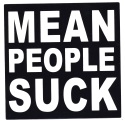
 What comes after the Post-PC?
What comes after the Post-PC? 
 I think at the dawn of PCs there was a company with a name like The People's Computer Company. If not, it could have been the name of the whole industry.
I think at the dawn of PCs there was a company with a name like The People's Computer Company. If not, it could have been the name of the whole industry.
This is what all the heroes of the 80s were thinking at the beginning. We're building tools to give power to the people.
It was an extension of the culture we grew up in, the 60s and 70s. Power to the People was a big idea then. I think it's going to be a big one again, in reaction to what the computer industry of the generation after the hippies is doing. Zuck is going to create rebellion. Apple and Larry and Sergei too.
The first product of the PPC will be a PC (of course) with all its ports open. With disk drives and an Ethernet jack. Slots. Nothing new. But the things that are disappearing from the "Post-PC" computers everyone is talking about will still be there on the Post-Post-PC.
I don't mind carrying around something a little more clunky if it can be connected to something we haven't dreamt up yet.
That's what was great about the original PC industry. It's what we'll come to value in the new one.
 Blogmark
Blogmark 
Must remember to write a blog post about this.
The tech industry has been absorbed by the ad industry, and vice versa.
However, there is, imho, still room for a tech industry that is not merged with the ad industry.
In fact, if we want to have a tech industry at all, we'd better invest in the "other" one, because advertising isn't much to bet on long-term. Seriously.
I had this flash reading a TechCrunch piece about Foursquare. It hit me that Dennis has been getting his education in advertising for the last few years. Now instead of talking features for users he talks about features for advertisers.
Yes, I'm sure there's a lot of money in this. But it wasn't why I got into tech. I don't like advertising very much. I don't mind if it's funny (like the E-trade ads with the kids) but much of what passes for advertising these day is pretty humiliating, for everyone involved.
Like the ads in front of movies, and the ads they play during breaks at NBA games. Why? I paid $200 for my seat. If I paid $225 could I have it without the ads?
Oh well, looks like I went ahead and wrote the blog post. ![]()
 Another look at Dropbox
Another look at Dropbox 
 Big tech companies don't trust users, small tech companies have no choice. This is why smaller companies, like Dropbox, tend to be forces against lock-in, and big tech companies try to lock users in.
Big tech companies don't trust users, small tech companies have no choice. This is why smaller companies, like Dropbox, tend to be forces against lock-in, and big tech companies try to lock users in.
That's why Dropbox is so useful and the stuff that the big companies have produced so far has been so crippled.
It's a good thing that Apple didn't buy Dropbox because you certainly wouldn't be able to store any kind of file you want in any structure you like inside an Apple-owned Dropbox.
The BigCo guys would tell you it's a formula for chaos to give users so much power, but they've been saying that forever, and they've been right in their own contexts, and wrong in the larger one. Big tech companies come and go, but this idea of not trusting users has been a constant.
So to think that Dropbox couldn't grow to become a platform the size of Apple or Amazon, well you have to make that argument, you can't just say it. It's the kind of careless inside talk I'd expect from an average tech writer, not the great Farhad Manjoo! (No sarcasm, not even the slightest bit.)
Google thinks files and folders are obsolete ideas. Oy. That's like Ford and Exxon thinking that roads and traffic lights are obsolete. It's true perhaps that we could invent better ways to store user's info today, but that's the way we store information. It's not going to change just because a product manager at Google or Microsoft thinks it should.
When Google finally releases their GDrive product, I bet it will manage files and folders the way Dropbox does. Who do we have to thank for that? Dropbox. But if history is a guide, they'll probably screw it up some other way. Limit the power of users in some way that Dropbox doesn't.
Re Bill Gurley's assertion that there's something special about the Dropbox synchronization algorithm, I'm a Dropbox user and I don't see it. I think the algorithm has some cosmetic glitches. No matter, it's still a useful product (this is not a bug report). The advantage Dropbox has is that it's a small company that's got a big idea, and they're executing well. The big competitors are good at huffing and puffing, and impressing reporters, but that's not where the fight is won or lost.
Now to Farhad's assumption that this service has to be free -- why? That's so depressing. What else in life is free? If I want to eat lunch I pay the restaurant. If I want to ride on the subway, I have to pay to do so. Again, in a very untypical fashion, Farhad just states that it's obvious that it has to be free. Well, that requires an argument. Maybe he's right, but why?
I like the fact that I pay for Dropbox. That means that they would be wrong to attach a horribly invasive business model to mining what could be some of my most sensitive data. It's really foolish to give all that stuff to a company without having a customer relationship with them.
As to the niceties, having it be able to remember the state of all your apps, it doesn't matter to me. Everything about how I use computers is so chaotic, it would be a very small thing to remember which apps and which windows within the apps were open. You know what I'd like even more -- having iPad browser tabs not refresh when you activate them. One of the most annoying features ever. But Topolsky wants Dropbox to know about the state of apps and windows, and maybe a lot of others do too. Let's see if we can get it. Maybe if the users got active and said to the people who make the operating systems that we want Dropbox and we want those features, they would work with them to give us what we want. But if I had to choose between good relatively safe synchronization that Dropbox provides and the mess that Apple provides, well, there's no choice.
But the really huge big gaping hole in Farhad's piece is that any of the big vendors are going to work better with their big compeitors than they would with the upstart Dropbox. Apple's synch server will give you lots of neat features but only for your Apple-made devices. Same with Google and Microsoft. That's a pretty worthless feature if you own an Android phone, an Amazon tablet and an Apple desktop.
Farhad has fallen into the trap that all tech writers seem to fall into eventually. They stop seeing the user as an important factor in the outcome of tech industry warfare. But if you look at history, not only are the users important, they're the only constant power. And they vote out lock-in, eventually. And that tends to favor Dropbox, not the incumbents.
Dropbox has the opportunity to build a platform that sits outside all the platforms we've come to know. Their challenge is to get users to care whether they can connect their Dropbox data to the devices they use. So far, they've done better than anyone else. And they won't have to deal with the second-guessing and turf wars that happen inside big companies. I don't think it's a slam dunk that Dropbox will grow to be a huge tech company, but I also don't think their product is just a feature.
Steve Jobs didn't say these things about other people's products, btw, because he had given it a lot of thought. He did it because he had a nasty streak, and he was trying to demoralize a competitor who didn't want to sell to him. I'm pretty sure they do this in other industries too. I've seen it done many times in tech.
 Everything is scaffolding
Everything is scaffolding 
I love it when software gets to the stage that the worldoutline is getting to.
For the last year, while under development, it's been a hot steamy mess. But I use my messes, and I have users, so every time I had to undo a mistake, or had to change my mind about how something worked, it meant a difficult "corner-turn" where breakage would happen, and putting the pieces back together was often hard work.
But it seems to have paid off. The last set of changes have been cleanups. Taking out half-done experiments, and relying on frameworks that were experimental before but now are rely-able (or reliable). And as a side-product it's gotten faster and faster, to the point where I can now link to pieces on the worldoutline from Twitter without taking the server offline while the bots that hack Twitter pound every link you push through there (Twitter might try to do something about this btw).
I just published a piece about infinite loops you might find interesting. I think it's really cool that all of a sudden people are curious about how programs work. I love to tell stories, and it's a challenge to find human terms to explain programming concepts. Everything in programming, of course, is human -- the languages were designed by people, used by people. They fit our way of thinking. If insects had evolved into a high form of life maybe they would have come up with a different kind of programming. Hey for all we know they have. (That's how programmers think, always questioning assumptions.)
Anyway, I expect to post more "over there" and at some point, "here" will move "there" as well. That's another thing about the tech world, everything is scaffolding, it's always just here to provide a basis for the next big thing that will replace this old thing. ![]()
 Podcast with Adam Curry
Podcast with Adam Curry 
I did a podcast with Adam Curry yesterday. ![]()
Except for one glitchy Rebooting the News last year, this is the first podcast we've done together since 2005, the early days of podcasting.
http://adam.curry.com/2012/02/24/wop120120224final.mp3
I know we need to get a feed going. We will do that, reallll sooon now. ![]()
BTW, one more thing -- sometime this month, according to Rudolf Ammann, this blog will be was 15 years old! Almost old enough to drive. ![]()
 What news must do
What news must do 
I just read Mathew Ingram's report on John Paton's talk about the future of news. I agree with what Paton says, but with an important caveat. He doesn't go far enough. The change he describes will not be at equilibrium. It is not the shape of the news system of the future. The practice he describes will not hold back the tide.
 What I've advocated to news organizations for 15 years, which has been ignored probably because it is so distasteful to the people in positions of power in the news industry, is that they reform around the idea of sources with the ability to communicate direct to readers. The role of news professionals in this future is to choose quotes from each of the sources to form something like stories. To distribute authority through the trust that readers have in their name, a trust that is rapidly diminishing, with good cause. In this model not only is the gatekeeping function gone, but so is the media function. We live in the age of disintermediation. A fancy way of saying we've disempowered the entity in the middle. Perhaps not eliminated them, but they no longer rule.
What I've advocated to news organizations for 15 years, which has been ignored probably because it is so distasteful to the people in positions of power in the news industry, is that they reform around the idea of sources with the ability to communicate direct to readers. The role of news professionals in this future is to choose quotes from each of the sources to form something like stories. To distribute authority through the trust that readers have in their name, a trust that is rapidly diminishing, with good cause. In this model not only is the gatekeeping function gone, but so is the media function. We live in the age of disintermediation. A fancy way of saying we've disempowered the entity in the middle. Perhaps not eliminated them, but they no longer rule.
If you want proof it's all around. Rick Santorum was able to become a leading candidate without money or the support of the media. Same with every other front-runner in the 2012 election cycle, except for Romney and Obama. The media worked actively against the Occupy movement, but that didn't slow it down. The story got out anyway.
There was an obvious opportunity here before blogging took hold, by offering to host the platforms for the most influential people in your community. It's probably still not too late to do this, but it won't be as powerful today as it would have been before WordPress, Tumblr, Facebook and Twitter.
The news people may still not like this because they aren't the heroes, but get this -- they never were, and this is where I agree with Paton emphatically. The bug in the mental model of news people is that they are gatekeepers. This may have been true because the means of distribution were expensive, but it's no longer true. And besides, the news writers were just employees anyway, the people with the power were the people with the capital to buy the machinery.
PS: If I were advising an existing publication how to get started down the Sources Go Direct path, I'd urge them to start a river, aggregating the feeds of the bloggers you most admire, and the other news sources they read. Share your sources with your readers, understanding that almost no one is purely a source or purely a reader. Mix it all up. Create a soup of ideas and taste it frequently. Connect everyone that's important to you, as fast as you can, as automatically as possible, and put the pedal to the metal and take your foot off the brake.
 Contraception vs the death penalty
Contraception vs the death penalty 
I understand that the Catholic Church doesn't want to pay for insurance for its employees that includes coverage for contraception, even though they are required to do so by law. I take them at their word that it's a matter of conscience. With the Republicans, who have made this their issue, I have doubts about it being about conscience. But I'm willing to give them the benefit of the doubt, for the sake of argument.
 The death penalty is also a matter of conscience for a lot of Americans. It's abhorrent to them that people be killed in the name of justice, especially when some of these people are innocent. As one of these people, myself, it's a horror not only that they're being killed or murdered in my name, but also that, through my taxes, I have to pay for it.
The death penalty is also a matter of conscience for a lot of Americans. It's abhorrent to them that people be killed in the name of justice, especially when some of these people are innocent. As one of these people, myself, it's a horror not only that they're being killed or murdered in my name, but also that, through my taxes, I have to pay for it.
So, if we're to establish a new precedent that Americans should not be required to pay for things they find morally abhorrent, then the death penalty is going to have be funded some other way, not through public money.
PS: It seems the Catholic Church would agree, btw -- since they oppose the death penalty. I wonder why they haven't refused to pay taxes until the government gets out of the business of killing its own citizens.
PPS: Ooops. I didn't realize that churches don't pay taxes. So why then don't they STFU about paying for moral things. They don't pay, we do. I don't see where they have any say in it.
 Everyone's talking basketball!
Everyone's talking basketball! 
There was a time, in the year 2000, when everyone was talking music. Everywhere you went. You'd be checking out the cucumbers and lettuce at the supermarket and the person next to you would ask if you were using Napster, and before you could answer they'd be off telling you what they found and how amazing the experience was.
That was already twelve years ago, but I'll never forget it. All of sudden something wonderful and unexpected had happened. Outside the normal. It wasn't planned by some marketing guy. The world had changed and it was great, and we didn't know what the limits were. Or how it would end.
I remember thinking -- I wish Jerry had been here to see this. The other day at the Knicks game I said to one of my friends that this was the first huge thing Steve Jobs missed. (Later I realized that he more or less missed Occupy too, which was just as big as either Napster or Linsanity).
 So this led me to a tweet this morning, where I compared the the opportunity the Knicks and basketball have to the opportunity presented by Napster, and realized they're going to blow it. When we were at the game the other day, they had the usual things to keep fans entertained during timeouts. But we didn't need them! Here we were soaking up something as great as Beatlemania or Napster, and they're shooting cheap t-shirts -- advertising for crying out loud -- into the audience as if we needed anything to occupy us.
So this led me to a tweet this morning, where I compared the the opportunity the Knicks and basketball have to the opportunity presented by Napster, and realized they're going to blow it. When we were at the game the other day, they had the usual things to keep fans entertained during timeouts. But we didn't need them! Here we were soaking up something as great as Beatlemania or Napster, and they're shooting cheap t-shirts -- advertising for crying out loud -- into the audience as if we needed anything to occupy us.
On the way out of the Garden you could see the signage hadn't changed yet. They had huge pictures of stars, who were still technically playing for the Knicks, but they weren't the story. Don't they have any actual fans working for the team? Yeah they were selling Lin jerseys, the street-level marketers knew how to adjust, but the corporate ones? Imagine what their meetings must be like. Imagine all the sleazy promotions they must be planning.
But they didn't create Jeremy Lin. They didn't even see him. Are they going to define them? Are we going to hate them? (Of course, the only question is what exactly will they do to make us hate them.) This is still America, and we're still run by lawyers and accountants. We just had a breakout of soul, a lot like the joy people had with Napster. Bloomberg shut down Occupy. This too will end. But for right now -- it sure is wonderful! ![]()
BTW, a few days ago I wrote about the Beatles, and what happened with them, how Beatlemania ended. One of the four really wanted to be a Beatle. That wasn't enough to drive them forward.
 Thinking out loud: DNS as ID
Thinking out loud: DNS as ID 
 Suppose Facebook or Twitter wanted to be really good netizens, and let you use their service to log onto other services, but to not lock you in. How might that work?
Suppose Facebook or Twitter wanted to be really good netizens, and let you use their service to log onto other services, but to not lock you in. How might that work?
Well, I wouldn't be known on other nets as @davewiner, instead I would be known as dave.scripting.com. That name would be a CNAME for Facebook, if I was using Facebook to guarantee I really am who I say I am. But if, in five or ten years, I decided to use another service, one with a neat feature Facebook doesn't offer, I could point dave.scripting.com at the other server.
It would be like changing your credit card number, something we have to deal with from time to time. Not a great thing, but then not too bad either. You get reminded of all the things you're paying for automatically. I actually like to go through that ritual from time to time. In this case you'd be reminded of all the services that have access to your personal stuff.
I doubt if Facebook would do this, but then a commercial ID hosting service, one that charged me say $10 a year to be my identity server, might be willing to offer such a service and make it easy for me to switch.
And here's the funny part. Such services already exist and they work really well. They're called registrars.
 What I learned by turning off comments
What I learned by turning off comments 
After all these years, the reasons I write my blog remain the same.
1. To influence.
2. To be influenced.
Hopefully, in both cases, for the better. I want to learn things that make what I do better informed, more valuable (however that is defined) and more timely. And I want to reciprocate, to give others the benefit of what I am learning.
The people who read this blog, by and large, are really smart. I'm learning that because, after turning off the comments, I'm hearing from people about my blog that surprise me. People I didn't know read it. If I knew they did, I might ask them what they think about this or that. Or to fill in a bit of knowledge that I am missing and don't find online. But if I don't know they're reading, I don't know to ask.
Further, they read the comments too. That's a surprise. But they don't contribute. Now, to me -- that's not good. In fact, that's bad.
And some read the comments because they like to see my response to off-topic stuff. To that I say *@#$*(&@#. What a waste. I work so hard, really -- every damn day -- to create software that makes this stuff work better, and that's what you look to me for? To those people, hope you find some other place for your emotional thrill. I'm not in that business.
The Mail Pages, very early in the evolution of Scripting News, were the ideal. They were a lot of work, a lot more than comments. But the result was incredible. It was like the stage at a really good conference. The people had important information and perspectives to share, and lots of them shared. They were excited about a new medium and it showed. It was the kind of excitement you see in basketball players the last few weeks, the thrill they're experiencing, that they were always capable of, catalyzed by an improbable star. Newness brings out goodness, it seems.
I hear that some people feel there's a virtue in being silent. I don't. I see it as selfishness. You're willing to take but you're not willing to give. Not a big fan of people who do that.
It's the same gripe I have with the tech investors. When the holes are being dug they don't have any help to offer, but when the ideas are ready for commercializing, they are happy to take the work and run with it. Great. Where's the profit in figuring out what's next? Where's the incentive? Having been around this block repeatedly and seeing unbelievable selfishness, I find myself wishing there was a way to say No, you didn't help so you can't have the benefit.
I've actually had people say, to my face, that my job is to work for free, and their job is to make the money. How could someone actually let those words come out of their mouth, with a straight face, with any honor or self-respect? These are people with kids, who presumably teach them to share what they have, and to help run the house. Yes people do things they don't want to do, because they need doing. So, as adults, why don't they roll up their sleeves and help?
Think about what you want from the net. And what you're willing to give up for that. Perhaps a few of your ideas? Or nuggets of truth you learn by doing what you do? Or if you spot an error in someone else's work, are you willing to help out by writing a great bug report? Think about it when you look for the comments and don't find them. They're not here now quite possibly because you weren't willing to contribute.
If you are willing to help, if you are a generous person, then what's stopping you?
PS: I love that the rotating header for today is the BSOD. Totally random. I had no role in chosing it other than writing the code that uses a random number generator.
 Why I have never been to SXSW
Why I have never been to SXSW 
 Part of me thinks I should be an insider at SXSW, that because I am one of the founders of the community, and a developer of the technology that SXSW bootstrapped out of, and continues to grow through, that they should have at some point asked me to talk. It's a matter of honor, I guess, and some amount of pride.
Part of me thinks I should be an insider at SXSW, that because I am one of the founders of the community, and a developer of the technology that SXSW bootstrapped out of, and continues to grow through, that they should have at some point asked me to talk. It's a matter of honor, I guess, and some amount of pride.
I've asked them, many times, why I was never invited to speak, they haven't been willing to answer. They've asked me to apologize for offering my own explanation, in a comment a few years ago on Marc Canter's blog -- and I've said I would be happy to, if they would tell me the real reason I'm on their short blacklist (maybe at the top of it).
I know you can apply to speak now, I even started to fill out the forms last year, but they asked so many "Who Are You" kind of questions, and my pride kept kicking in. Why don't you know who I am? I am willing to play the hamster up to a point, in some contexts. But this is so totally over the top.
There were years, at the beginning, when you had to get an invite and they weren't willing to provide one. They still invite people to speak on their keynote stage. Ahh, I'm not important enough. But they've invited people, many of them, onto that stage to talk about my work, my contributions -- so why can't I speak for them too?
I know it's supposed to be a lot of fun, and some of the participants have been very nice to me, offered good places to stay for free, etc. But I want to get past the gatekeepers. I'd like to be invited, for real, by the people who run the show. I think they've benefitted from my generosity, why not reciprocate?
Update: Paul Ford says the theme of the web is Why Wasn't I Consulted? ![]()
 Macroeconomics
Macroeconomics 
The Repubs say they don't like Keynsian economics. Not sure what they don't like about it, because they seem to favor some very Keynesian ideas when they talk about "job creators" and growth trickling down.
 When you cut the taxes of people who supposedly create jobs to encourage them to create more jobs, you're stimulating them, whether they create jobs or not. I believe they mostly just pocket the profits, and don't worry too much about creating jobs (I've got personal experience with this, when I pay very low taxes on windfalls, I don't generally think that any obligations come with the lower taxes, I don't even see it as lower taxes, just low taxes). This theory seems quite Keynesian to me.
When you cut the taxes of people who supposedly create jobs to encourage them to create more jobs, you're stimulating them, whether they create jobs or not. I believe they mostly just pocket the profits, and don't worry too much about creating jobs (I've got personal experience with this, when I pay very low taxes on windfalls, I don't generally think that any obligations come with the lower taxes, I don't even see it as lower taxes, just low taxes). This theory seems quite Keynesian to me.
But when the stimulus is in the form of paying teachers, cops, sanitation workers, construction crews, etc -- that's socialism! And supposedly discredited because it's Keynesian. But what's the difference? You're just choosing to stimulate different people. Never mind that it's likely to create more jobs because the people you're stimulating can't afford to pocket the profits, they have to spend it because they don't have much of a surplus.
The Repubs, who are I assume educated people themselves, act like the elites they decry, by ignoring their education, and pretending there's a difference between subsidizing the rich and subsidizing the working classes. There are differences, but they're not moral, just pragmatic.
Glad I don't have comments so I don't have to hear about how I'm a liberal (I'm not, I'm actually very conservative). But what the heck, why not call people names before even beginning to find out who they are? ![]()
 New twist, FreshAir podcast
New twist, FreshAir podcast 
A few weeks ago I noticed that my river was filled with FreshAir podcasts. Hundreds of them, dating back to 2007. One for every weekday for five years.
I figured something glitchy happened, and shrugged it off. Sometimes people adjust their content management system, and the feed guids all change, so the aggregator thinks they're all new. It's a bit more expensive in the case of podcasts because it downloads them all, and it wipes out all the other MP3s in my Podcatcher folder, because it's managed by the software to only use a fixed amount of storage. So every time a new podcast is downloaded, the oldest one is removed.
But then it happened again. And again. So I had to do something about it.
I was busy with another project so I did the simplest quickest thing, I unsubbed. But this meant I had to go to the FreshAir site to manually see what's new, because I like to listen to FreshAir on my daily walk. Not always, but often.
This morning I didn't feel like tackling my next big project, so I did something "lite" -- I made a change to the way River2 works to allow for this quirk in the FreshAir podcast.
Here's how it works.
This keeps the flow marching forward in time, not backward -- but allows items to appear out of order in the feed, and for items to be published a bit after the feed's pubDate for that item.
Now I'm going to see if:
Here's the worknote for this item.
 I love "As Good As It Gets"
I love "As Good As It Gets" 
I would probably not attempt this post if I had comments because of the hoots it would get from some of the 12-year-old minds that occupy the comments of tech blogs. ![]()
Anyway...
One of my favorite movies of all time is As Good As It Gets.
I like it because it's like an inkblot test. Depending on whether you're male or female, gay or straight, young or old, even black or white, you see something different. For each of us the story revolves around a different character. Even though the story is, imho, how they really aren't as different as you might think.
My point of view. Women tend to look at men in a very superficial way. I know because, like Melvin, I've been having this conversation with women my whole life. They think we do things "because" of other things, and when you find out what those other things are, you find out how low an opinion they have of us.
We all look at Carol the Waitress, at first, and see a saint. But if you look at it from the man's point point of view, you see that she's not really giving Melvin a chance to be himself. I like her, but I want her to be nice to Melvin! And despite herself, she actually likes the part of the guy she thinks she doesn't. Or whatever. It's soooo confusing, which is the best part of the movie, because all this stuff, when you're in the middle of it, is very very very confusing (in a wonderful way of course, or we wouldn't bother).
I thought of this movie today because the Republicans are reminding me of Melvin Udall, the character played by Jack Nicholson. Carol Connelly would, it seems, have a question to ask the Republicans about this vaginal ultrasound law they want to have in Virginia for women getting abortions.
"Do you have any control over how creepy you allow yourself to get?"
I'm sure the Republicans, as a party, somewhere inside their collective, tortured soul, think they're doing something good here. But.. I don't know where to begin, so I won't. ![]()
 What is Relative Writing?
What is Relative Writing? 
 You may have read here or elsewhere that comments are no longer part of Scripting News. I looked at it this way. We could either try to fix the problems with the existing comment system, or we could revisit the whole idea of relative writing.
You may have read here or elsewhere that comments are no longer part of Scripting News. I looked at it this way. We could either try to fix the problems with the existing comment system, or we could revisit the whole idea of relative writing.
The first option was not actually an option because I don't have the ability to change Disqus, the commenting software we were using. And while I have written commenting software, and even have debugged source code available for download (it's part of manila.root), I don't have any interest in trying to fix commenting software. We know where the problems are. And Disqus and the others have done a good job of taking these things to their logical conclusion. From here on it looks like they'll be refining, adding features, debugging and scaling. Not taking a fresh look. (If they are, we can hopefully connect our efforts. I love working with others on open formats and protocols.)
Now, relative writing. WTF is that.
Start off by what is not relative writing.
I had a sandwich for lunch.
That's about me and my sandwich. It's not about someone else's writing. It's not relative.
Joe wrote a wonderful essay about the sandwich he had for lunch. I thought it was very expressive and colorful. He really captured the flavor of the sandwich. And he expressed a vision for the future. Tomorrow he's planning on having tuna salad. And on Thursday he expects it will be hot pastrami.
In that example, I'm writing about someone else's writing. That's relative.
The first bit doesn't need to be connected (or related) to any other writing, although I might want to link to a story about sandwiches or food, or maybe someone reading it doesn't know what lunch is, so I might link to a definition of lunch. But you can understand what I'm saying without reading someone else's writing.
I'm of the opinion that the best, most powerful, most useful writing is non-relative. That too much relative writing is of the form: "I have an opinion about something like this." They don't often express the opinion very well. And quite often it's confused with the person writing it. For example, when I say hackathons are nonsense, a lot of people respond as if I said you are nonsense, or the hackathons you love are nonsense. Obviously my experience is colored by the hackathons I've been to or heard about. And my view of them is based on who I am, not who you are. A lot of what people had to say about it helped me see how they view the world, and how different it is from the way I view the world. That's good! But the confusion isn't so good. It's why people try to hurt others, because they've confused the other person with their own feelings. But I'm rambling.
Let's say I see something on Twitter that I'd like to do some writing about. That of course would be relative. Somehow I want to attach my writing to the tweet. They offer almost no good way of doing that. Same with Facebook and Google and whatever. Same with the comments I had here on Scripting News.
 What I'm hoping is that we can develop good ways of connecting writing, on a consensual basis. I'd like to team up with people whose writing complements mine. People who have ideas that I would like to see gain more exposure. Without opening it up to spammers and emotional thrill-seekers. That's the challenge, to strike a balance, to create something new and better.
What I'm hoping is that we can develop good ways of connecting writing, on a consensual basis. I'd like to team up with people whose writing complements mine. People who have ideas that I would like to see gain more exposure. Without opening it up to spammers and emotional thrill-seekers. That's the challenge, to strike a balance, to create something new and better.
Once a long time ago I wrote about how when a big tree falls it creates room for lots of new growth. It's always that way. One door closes and another opens. Carmelo Anthony is injured -- and -- Jeremy Lin! Just one example. I actually had a big tree fall near my house in California right around the time Jerry Garcia died. It helped me understand that this is the way things are and it's neither good nor bad. But comments going away here immediately gave me ideas on what could take their place. That, to me, is purely good.
 What Jeremy Lin teaches us
What Jeremy Lin teaches us 
Why did the college basketball teams miss his talent?
Why did the NBA?
Really simple. People see what they expect to see.
Great quote in Moneyball about this.
"People who run ball clubs, they think in terms of buying players. Your goal shouldn't be to buy players, your goal should be to buy wins."
This lesson doesn't just apply to basketball or baseball or sports, it applies to everything.
And btw, the reason people didn't expect he'd be a great basketball player was his race. So we're going to get a chance to clear up some racism now, so that's another good thing.
PS: I went to the Knicks game today and he's every bit as exciting a player in person as he is on TV. What a gift! ![]()
 No comment
No comment 
I finally decided today that even though sometimes I get some value from having comments here on Scripting News, in balance they're not worth the trouble. So I'm turning them off.
There may be times in the future when I want to solicit input from readers. I'll find another way to do that.
BTW, as I sat down to actually turn them off, a comment on my whimsical post about Jackson Pollock came in that confirmed I'm making the right decision. ![]()
 Hackathons are nonsense
Hackathons are nonsense 
Hackathons are how marketing guys wish software were made.
However, to make good software, requires lots of thought, trial and error, evaluation, iteration, trying the ideas out on other users, learning, thinking, more trial and error, and on and on. At some point you say it ain't perfect, but it's useful, so let's ship. That process, if the software is to be any good, doesn't happen in 24 hours. Sometimes it takes years, if the idea is new enough.
If you want an idea of an art that's like making software, look at film and food. It's got a lot in common with both. But there will never be a Julia Child of software. It's not an art where you can observe the creative process, because that goes on inside the creator's head. In that sense it's like film. And it's not a science, as some people seem to think it is. Good software makers are also joyous software eaters. We use the stuff, so we know when it's done because it's use-ful.
 What if Jackson Pollock had comments?
What if Jackson Pollock had comments? 
What if, when you viewed a Jackson Pollock painting, you could leave a comment?

Gee man I don't understand. (That's okay, maybe that's the message.)
I could do that. (No you can't because art is an expression of an individual. That's not your art, so you couldn't make it. You could make your art.)
I know art when I see it and that ain't art! (You just proved that it is art!)
It's just a random scribbling. (Heartless.)
 Use the web
Use the web 
As you may know, I push links through my linkblog feed and through Twitter. Please subscribe to one or both.
Sometimes I push a link that gets retweeted a lot. I appreciate that in the New Twitter UI it's easy to see who retweets. And as I result I can see which ones are heavily retweeted.
I pushed a link to an article that said that designers are ruining the web. I don't agree, but I thought it was well-written and thoughtful, and made a point that could use a fresh look.
John Naughton: Graphic designers are ruining the web.
What I think is true -- bad design makes the web ugly, slow and hard to use. How bad design comes about is uncertain, but it's not always designers that are responsible. It could just as easily be bad clients or bosses. Or programmers who don't work well with their designers. Etc.
A bunch of responses in tweets say it's not true, but, in 140 chars all you can do is grunt or snort. Nothing other than a primal scream or two. No! Not true! Arrrgh!
I said people should write a blog post stating the other side. And one did. Well thought-out, reasonable, respectful. So I pushed a link back out the same way the other one went.
Jamie Forrest: No, Graphic Designers Aren't Ruining The Web.
The web works, badly designed or not! ![]()
 Schadenfreude and Mitt Romney
Schadenfreude and Mitt Romney 
I forget when it happened but one day I realized that Schadenfreude had been a big part of my life, both sending and receiving. I think it's a big part of everyone's life.
The secret of a politician is to get rich and powerful without accumulating so much of it that you die a political death.
Schadenfreude is the reason that people seek out friends at their same level in society. It's why, when a friend gets rich he stops hanging out with you. Because the Schadenfreude you emit is tangible, they can feel it.
 We kind of all wish there were no such thing, that we could rise above it, but perhaps not so much in the case of Mitt Romney. Here's a guy who soaks up huge quanitties of Schadenfreude, and it's probably why he's unelectable. Rick Perry on the other hand is so good at projecting anti-Schadenfreude that people think he's to damned dumb to be President, even though we'd love to drink a beer with him (not me so much, but other people).
We kind of all wish there were no such thing, that we could rise above it, but perhaps not so much in the case of Mitt Romney. Here's a guy who soaks up huge quanitties of Schadenfreude, and it's probably why he's unelectable. Rick Perry on the other hand is so good at projecting anti-Schadenfreude that people think he's to damned dumb to be President, even though we'd love to drink a beer with him (not me so much, but other people).
Not a big deal, but I've been wanting to say a few things about Schadenfreude for a while. And I really like typing the word Schadenfreude. ![]()
 Samsung is wrong about TV
Samsung is wrong about TV 
I read this piece on TechCrunch last week, in which a Samsung product manager says this about Apple and their TV. "TVs are ultimately about picture quality." Okay. That marks Samsung as one of the pigs in an Angry Birds game. Like Kodak and Blackberry in years-gone-by.
 I was watching the Knicks game on Time-Warner cable last night, and remembered why TV sucks, and it had nothing to do with picture quality. The picture quality was absolutely fantastic. If you had time-transported me from ten years ago to my couch last night I would have been blown away. HD is great. Unbelievable how beautiful it is. And the sound quality was great too. I have some very nice Polk Audio tower speakers, and a very powerful receiver driving them, connected optically to the set-top-box. Amazing audio experience. Yet the whole overall experience sucked. Because nowadays while I'm watching TV, I want to look stuff up on the web, communicate about the experience on the net with people I communicate with. And see what they're saying. And who knows what else in the years to come.
I was watching the Knicks game on Time-Warner cable last night, and remembered why TV sucks, and it had nothing to do with picture quality. The picture quality was absolutely fantastic. If you had time-transported me from ten years ago to my couch last night I would have been blown away. HD is great. Unbelievable how beautiful it is. And the sound quality was great too. I have some very nice Polk Audio tower speakers, and a very powerful receiver driving them, connected optically to the set-top-box. Amazing audio experience. Yet the whole overall experience sucked. Because nowadays while I'm watching TV, I want to look stuff up on the web, communicate about the experience on the net with people I communicate with. And see what they're saying. And who knows what else in the years to come.
And I actually do have a computer connected up to the TV set, so technically the signals are there, it's just that the TV is too freaking dumb to know what to do with all those signals. And of course that's what Apple is going to take care of. The same way they took care of Kodak. Because they realized, as so many of us did (in the tech world) that the great thing about cameras is sharing pictures. And the closer to real-time that happens the more we like it. There was a cell phone in our pocket, and a camera. Why not connect the two?
In the same way, there's a computer and a HD video/audio signal coming into the same display. Why not combine the two? It's not as if windowing technology were particularly new, it's not. It's just that old ways of thinking die hard. And that basically is the business Appe is in, taking advantage of people who employ obsolete ways of thinking. TVs are not ultimately about picture quality. In fact picture quality isn't even number one. Integration, connections -- that's the first thing. If I can get great picture quality, and you can be sure Apple will give it to us (probably made by Samsung) that's fine. But first I want to use the tool the way I want to use it.
 How to fork a format
How to fork a format 
Jon Postel, one of the main architects of the Internet, wrote a rule.
Be liberal in what you accept, and conservative in what you send.
I'm going to focus on the second part in this, I hope, short piece.
I'm thinking of Postel this morning because someone on Hacker News dug up a post written by a developer who then worked at Amazon, who (I believe) now works at Google, where he reasoned that we needed Atom because of a defiicency in RSS.
I remember reading the post at the time, but not commenting, because anytime I said anything in that discussion it became personal, even if I just talked about the merits of the proposal or offered another point of view. I saw this then, and now, as a political thing. For what reason, I don't know or care. But they were making a fundamental mistake in the evolution of formats. And now that we know how it turned out, I think it's even more obvious.
The author said basically, because the generator of an RSS feed can't communicate to a consumer whether the contents of a description element contains encoded HTML or plain text, or perhaps some other kind of character-encoded content, it's impossible for a processor to know how to handle it. They called this "silent data loss" which makes it sound a lot more terrible than it is. We still process RSS 2.0 feeds to this day, somehow, without much apparent loss of data.
 Further, if the problem is limited to the description element, why re-invent everything about RSS? Clearly, a better approach was to simply create a new format, call it whatever you like, and define it as RSS 2.0 except for the following differences, and then specify them. They could say that in this new format, description could not contain encoded text. That way there would be no ambiguity, you would know never to decode the value of a description. If you wanted to attach encoded HTML, you would use a different element, perhaps called content, and it would have an attribute that told you how to interpret its value. In every other way it would be identical to RSS 2.0. If they spotted another flaw in RSS 2.0 that they felt they had to correct, they could do it again, in exactly the same way.
Further, if the problem is limited to the description element, why re-invent everything about RSS? Clearly, a better approach was to simply create a new format, call it whatever you like, and define it as RSS 2.0 except for the following differences, and then specify them. They could say that in this new format, description could not contain encoded text. That way there would be no ambiguity, you would know never to decode the value of a description. If you wanted to attach encoded HTML, you would use a different element, perhaps called content, and it would have an attribute that told you how to interpret its value. In every other way it would be identical to RSS 2.0. If they spotted another flaw in RSS 2.0 that they felt they had to correct, they could do it again, in exactly the same way.
But then I can reduce that process another step and say why not follow the other branch of the RSS 2.0 roadmap, and instead of forking off a new format, just define a namespace that has the new elements that behave, in your opinion, correctly, and not invent a new name either? Keep it all as simple as possible. And support the second half of Postel's Law. This is exactly the approach Apple took with their iTunes extensions, and Yahoo took with Media RSS.
At this point it doesn't matter what the answer is. Atom 1.0 is a supported format. It has different names for almost everything in RSS 2.0. Where they use the same name it's got a different meaning and a different set of possible values. It's more work for every developer, but we're living with it.
In case anyone comes across this problem in the future, with some format other than RSS, I suggest they listen to Dr Postel, and ponder the wisdom in what he's saying, and learn from our experience in syndication. Keep the number of variables to a minimum. It makes it easier for everyone, increases compatibilty (Postel called it robustness), keeps complexity down, and lets us build higher structures because we didn't use up all the complexity solving simple problems.
 So good to have Apple watch out for us
So good to have Apple watch out for us 
 The only malware that we know of in the Apple ecosystem is software that Apple blessed through its review process. The stuff that grabs whatever it can and uploads it to their private servers. Do you think Apple has "dipped" into our private data for its own purposes? Why wouldn't they -- everyone else was doing it. And btw, they still are doing it. They promised to change the way the system works, but they haven't changed it yet. And what about all the data that was uploaded who-knows-where. Can't put the toothpaste back in the tube. How many apps do you have on your iPad or iPhone? Do you know which ones are hacking your life right now?? Is Apple helping you? I don't see any evidence of actual help. All this on the day before they announce that they're going to apply the same approach that worked so well on iOS on Mac OS.
The only malware that we know of in the Apple ecosystem is software that Apple blessed through its review process. The stuff that grabs whatever it can and uploads it to their private servers. Do you think Apple has "dipped" into our private data for its own purposes? Why wouldn't they -- everyone else was doing it. And btw, they still are doing it. They promised to change the way the system works, but they haven't changed it yet. And what about all the data that was uploaded who-knows-where. Can't put the toothpaste back in the tube. How many apps do you have on your iPad or iPhone? Do you know which ones are hacking your life right now?? Is Apple helping you? I don't see any evidence of actual help. All this on the day before they announce that they're going to apply the same approach that worked so well on iOS on Mac OS.
 Most cool Jeremy Lin moment
Most cool Jeremy Lin moment 
 I finally got to watch a Knicks game last night with Jeremy Lin.
I finally got to watch a Knicks game last night with Jeremy Lin.
My favorite Lin moment was when he dribbled the ball all around every opposition player and they were all just standing there with no idea what to do. It was like Bugs Bunny making fun of Elmer Fudd. Wonderful basketball. Or just plain wonderful.
Another amazing thing is that there's no doubt he's the captain on the court. How did that happen so quickly? They communicate so well. But how long have they been playing as a team? Not very long!
And the other guys were so inept and demoralized. One of the players, Cousins I think is his name, was angry the whole game. Even after he scored he was angry. What gives. And the Knicks were having so much fun. I hope it was real. I believe it is.
Jeremy Lin is every bit as powerful as Occupy, in fact I see it as an extension of Occupy. I hope he stays true to who he is. A guy who broke in by dint of sheer excellence, determination, intellect and power. He's the absolute example of what's possible, and he just couldn't be more in tune with the times.
And I absolutely love that he came out of Harvard. It's one of things I learned when I was there as a fellow. It's possible at Harvard to be individually creative. It's got lots of politics, as do all large organizations. But if you really insist, you can do something unique there. I think that makes it an unusual campus that way. Not sure.
Benchmark 
It took me less than 2 minutes to create this site.
http://crazyones.blorkmark.com/
And 30 seconds of it was waiting for DNS to propagate.
 We're going to Disneyland!
We're going to Disneyland! 
It was totally predictable that Apple would move in the direction they're moving. And of course it was predicted here, to which Apple zealots said but you have a choice. They still say that. Over time the Apple-approved choices will get smaller. This is what I refer to as the disneyfication of computing. It's inexorable.
 I prefer if Microsoft would zig to Apple's zag, to match every Apple move to close off their ecosystem to ever-more-docile programmers, with an equivalent move to invite in the most creative to work in their space. In the first of many such analogies for sure, there are Jeremy Lins out there in the software world. They don't work for Microsoft or Apple, and more and more they won't fit into their developer programs. What are we to do about it?
I prefer if Microsoft would zig to Apple's zag, to match every Apple move to close off their ecosystem to ever-more-docile programmers, with an equivalent move to invite in the most creative to work in their space. In the first of many such analogies for sure, there are Jeremy Lins out there in the software world. They don't work for Microsoft or Apple, and more and more they won't fit into their developer programs. What are we to do about it?
The first thing to do is to make sure there's a distribution of Linux that matches the current-day Mac in ease of use. This fork will not go down the same path as Mac OS, it will not become a tablet computer on a desktop. It won't be owned by Google and it won't be disneyfied, although it should be protected for users with anti-malware updates, on a regular basis. The funding should come from organizations who have an interest in not being restricted by Apple, Google and the rest of the tech industry. Hopefully the latest fiasco with address books was enough to alert others that the tech industry is not so benign.
Another thing we have to be sure of is that there is an easy-to-install server that runs outside Microsoft, Apple or Google environments, that does great easy cloud-like things out of the box. My offerings will include: 1. Linkblog, 2. River and 3. Worldoutline modules. People should be making server apps that a technical user can install. And for that we need a server platform that really works and is as easy as it can possibly be to set up and administer. We must work on ease of use. Iterate. Bootstrap. Turn users into developers. Repeat.
And we should cement our relationship with companies like Amazon and Rackspace, that make it easy to boot up a virtual server in their clouds. This is important, very very important and should be encouraged and more investments made.
And the universities should get into the middle of this, the way the Internet booted up out of academia in the 70s and 80s. It's the young creative people who have the most at stake here. People my age have our live's work invested in the open platform. But the creative people coming of age today must have a place where they can try out all their ideas, not just the ones that play in a theme park run by the tech industry. We had that freedom when we were young, and were able to create great things from it. We must pass on a wonderful cyber-world to the next generation, not a crippled one.
It's time to stop thinking of ourselves as happy users and start thinking about our future independent of the tech industry. We need a platform for creativity, but instead we're headed to Disneyland. FrontierLand, not the frontier.
 iPhones and unprotected sex
iPhones and unprotected sex 
 You might get an STD if you have unprotected sex, but even the smartest people from time to time throw caution to the wind. In the heat of the moment.
You might get an STD if you have unprotected sex, but even the smartest people from time to time throw caution to the wind. In the heat of the moment. ![]()
Look, no one likes it when you shout Fire in a movie theater when everyone is really loving the movie. But if there's a fire you should probably ignore people's prefs and shout anyway. Like the people who said it was a bubble when housing prices kept going up, when we're fighting two wars but feeling no pain at home. Something was wrong with that picture.
Something is wrong with today's picture too. There isn't room for every college undergrad to drop out and start a new company. VCs that encourage this, and it seems they all do, are no better than mortgage brokers that put immigrants who couldn't speak English into McMansions.
All these fake startups need us to let them have our personal data, the same way the mortgage arbitrageurs needed all those junk mortgages to bundle up into AAA securities. The companies the VCs are starting now are garbage too. The kids who are jumping out of college to get rich are screwing themselves. And the universities that are shoveling their kids out of the door, some even saying openly they want to make money off the next Zuck or Gates, a lot of them are going to go the way of Lehman Brothers. And I don't think there's going to be much in the way of bailouts coming for them.
All you need for a bubble is a steady stream of suckers.
It's all connected. The fact that they're pushing our data up into the cloud is just one more facet of it. You can be sure they're not being squeaky clean about what they do with this data. If you think ethics are big in boardrooms in Silicon Valley, you have yourself to blame because the facts that say otherwise are staring you in the face.
 Did blogspot's Atom feeds change?
Did blogspot's Atom feeds change? 
I got a bug report yesterday that said that River2 no longer works properly with Atom feeds from blogspot.com. I looked into it, and saw the behavior that was reported.
I'm not at all sure what happened. But if you have some knowledge about how this is supposed to work, have a look at this feed, and look at an <entry>. See how it has a lot of link elements? Which one is supposed to point to the article? Is that part of some standard? Are other sites doing it this way, or just blogspot.com?
If it were RSS, I'd be looking for a guid element with isPermaLink true. If that weren't present, I'd accept a link element. I'm looking for the same thing from this Atom feed. I want to give the user a pointer to the article that's being linked to from the feed.
It looks to me like that's the link with the rel attribute equal to "alternate." But I don't know, and I don't want to modify the code that's meant to deal with generic Atom feeds if this is just a workaround for blogspot.com.
The usual caveat that this could be my bug, not theirs.
Also it would be helpful to see any changenotes or technotes from Google that explains how we're meant to interpret their Atom feeds. Would help increase confidence.
Update: Problem resolved, with help from Dan and Ted.
 The tech press is alive!
The tech press is alive! 
The Verge and VentureBeat are both running user-oriented stories about the iPhone address book issue. Both are explaining it in terms of what apps are doing with your data. Up till now the tech press has been focusing on personality issues.
Anyway go read the Verge and VentureBeat pieces, and let's keep going.
 What info can iOS apps access?
What info can iOS apps access? 
Can't get the tech press/bloggers to focus on the core issue in AddressBookGate, so let's do it ourselves.
Which of the apps on my iPhone is transmitting everything I think is private and to whom are they transmitting it?
I'm not an iOS developer so I can't answer this question myself.
But lots of iOS developers read this site, so could you help quantify the extent of the problem?
Paul Robichaux just posted this. "The iOS address book is one of the few data stores that apps can easily access, along with the music library and the camera roll. Other data types, like the store of SMS messages, aren't accessible. The full list is available in the iOS developer documentation. "
Very helpful. So it's reasonable to assume that our music and photos are out there, in addition to our contact info.
Update: Other info any iOS app can access -- 1. Calendar (read/write) via the EventKit API and 2. Cellular carrier info via CTCarrier.
 Silicon Valley's narcissism
Silicon Valley's narcissism 
Dan Lyons blasts Mike Arrington and MG Siegler for being relatively cheap PR reps for the companies they blog about.
It's fun to read, up to a point, because he says so well what we've been thinking about these guys. But there's a problem with all this, including Lyons' post. They're changing the subject. Making it about personalities not address books.
Users are exposed, maybe millions of them, and the tech industry hasn't offered to help. Or even to stop.
Which of the apps on my iPhone is transmitting everything I think is private and to whom are they transmitting it?
 How industries react to crises
How industries react to crises 
The idea of companies reacting to crises about product quality issues is not new.
The first time I personally encountered it, on the other side of the equation -- as a vendor -- was with copy protection in the 80s. We were doing it like "everyone else" was. Kind of like the address book scandal that's breaking out now.
My company wasn't the main target of the outrage, Lotus Development was. That doesn't mean we didn't get punished by our customers, we did. And we deserved it, and like everyone else, eventually we gave the customers what they wanted. But it took too long. And I learned an important lesson here. It totally influenced my thinking about the role of vendors in relation to customers, and who's really doing the innovating.
 The first tech crisis that came about after the birth of the blogosphere was the controversy about floating point math errors in Intel chips. A professor in Virginia had discovered that under some circumstances the math processor in an Intel chip would return the wrong answer! You could demo it in an Excel spreadsheet. The company responded at first with a technical answer, explaining how unlikely it is that anyone would ever see an incorrect result. As an engineer and mathematician and computer guy, I understood what they were saying, and was willing, personally, to take them at their word. But this did not go over at all with users and the press. Computers are supposed to be perfect. No bugs allowed. They didn't care how unlikely it is -- fix it! That seemed to be what people were saying. Intel tried to wait it out. They tried to stonewall it. I don't remember if they ever attacked the critics personally as we're seeing in the industry response to AddressBookGate, but if they had it wouldn't have gotten the results they were hoping for.
The first tech crisis that came about after the birth of the blogosphere was the controversy about floating point math errors in Intel chips. A professor in Virginia had discovered that under some circumstances the math processor in an Intel chip would return the wrong answer! You could demo it in an Excel spreadsheet. The company responded at first with a technical answer, explaining how unlikely it is that anyone would ever see an incorrect result. As an engineer and mathematician and computer guy, I understood what they were saying, and was willing, personally, to take them at their word. But this did not go over at all with users and the press. Computers are supposed to be perfect. No bugs allowed. They didn't care how unlikely it is -- fix it! That seemed to be what people were saying. Intel tried to wait it out. They tried to stonewall it. I don't remember if they ever attacked the critics personally as we're seeing in the industry response to AddressBookGate, but if they had it wouldn't have gotten the results they were hoping for.
Eventually Intel had to relent and offered to replace anyone's CPU with one that didn't have the bug. The cost of the exchange was huge. Not just in dollars spent on fixing the problem, but in reputation and trust lost. People found out that computer chips were fallable. This is not something they wanted to know. And had Intel responded initially with the response they eventually had to implement, the cost would have been much lower. It cost them a lot to try to douse the flames, and it didn't work.
 The classic textbook example of a crisis perfectly handled was the Tylenol tampering incident in 1982. Some unknown person had put cyanide poison in a few bottles of Tylenol in Chicago, and seven users died as a result. This was not something, in the opinion of Johnson & Johnson, the owners of the product, they could brush off, or explain. They immediately, with no hesitation, took responsibility. They emptied store shelves of their product, even though the vast majority of them were not poisoned. They did not re-introduce the product until they had a process in place that would guarantee not that it was unlikely their product would be tampered with (Intel's defense) but guaranteed that it was impossible. All the double-security packaging you see on medical and food products these days is a result of that incident in 1982. That industry went from being innocent about possible security issues to passionate about it. It could have been the death, not only of seven customers, but of the brand. Tylenol quickly came back to the top, and trust in their product and the company went up as a result of the incident.
The classic textbook example of a crisis perfectly handled was the Tylenol tampering incident in 1982. Some unknown person had put cyanide poison in a few bottles of Tylenol in Chicago, and seven users died as a result. This was not something, in the opinion of Johnson & Johnson, the owners of the product, they could brush off, or explain. They immediately, with no hesitation, took responsibility. They emptied store shelves of their product, even though the vast majority of them were not poisoned. They did not re-introduce the product until they had a process in place that would guarantee not that it was unlikely their product would be tampered with (Intel's defense) but guaranteed that it was impossible. All the double-security packaging you see on medical and food products these days is a result of that incident in 1982. That industry went from being innocent about possible security issues to passionate about it. It could have been the death, not only of seven customers, but of the brand. Tylenol quickly came back to the top, and trust in their product and the company went up as a result of the incident.
And when Tylenol communicated about the incident, they validated people's concerns, they did not dismiss them, or minimize them. They have families too! No one wants to take a pain reliever thinking it might be poison. They understood. They are humans, like we are.
This is what the tech industry should be learning. Will the adults in the industry get with the CEOs, behind closed doors, and coach them on this process. You simply can't win by trying to intimidate people who ask serious questions about the security of your products.
The truth is that repressive, murderous governments have been caught hacking into commercial vendors servers to get information about people they want to repress or murder. They use social networks to find out who they are associating with. This is a problem that is recognized by all serious security experts. It's not something you can or should want to brush aside. Here's a chance for your companies to shine. Instead the response has been even more sequestered than Intel's response to a much more benign issue, 18 years ago. It's time to make this change in tech, once and for all. Your products are not toys, they are used seriously by real people. You need to show respect for your product, and that means respect for your users.
 The bigger question Path raises
The bigger question Path raises 
I have two smartphone-like devices -- A Samsung Galaxy/S on T-Mobile, and an Apple iPhone 4 that does not currently have a service plan. I also have a Google Voice account that I use for calls from my desktop. My NY apartment has awful cellphone coverage, so most of the calls I make are via Google Voice.
Until I used Path for the first and only time in late 2010, it never occured to me to ask whether the contents of my address book on the iPhone are private. As I said in the blog post I wrote at the time, this can't be a legit part of someone's business model, because I pay for the right to keep my address book on the iPhone.
 But I learned before, that even though Apple jealously guards its own secrets, it doesn't help its customers protect their information from being shared with the world. I learned this when a hard drive stopped working. I bought a replacement from Apple, and they refused to give me the old drive. I had to raise the issue all the way up to Steve Jobs to get the hard drive back. I was really disappointed to see this. I thought of Apple as a highly competent company, and this lack of concern for their customers says something completely different about their competence. For the month it was out of my hands, I have no idea where it was, if it was backed up, and where the data on the drive might have ended up.
But I learned before, that even though Apple jealously guards its own secrets, it doesn't help its customers protect their information from being shared with the world. I learned this when a hard drive stopped working. I bought a replacement from Apple, and they refused to give me the old drive. I had to raise the issue all the way up to Steve Jobs to get the hard drive back. I was really disappointed to see this. I thought of Apple as a highly competent company, and this lack of concern for their customers says something completely different about their competence. For the month it was out of my hands, I have no idea where it was, if it was backed up, and where the data on the drive might have ended up.
I am disappointed that programmers at Path and at Apple and perhaps dozens of other tech companies lack the ethics to stop their employers from using any data they can easily put their hands on. This is like a doctor who sees your wallet on your hospital room nightstand, and copies your credit card numbers, driver's license number, social security card, pictures of family members. It's there. No one is protecting it. Right? But it's even worse. It's as if the hospital had a policy to copy the info in all wallets left on patient's nightstands.
All these are moral questions, important, but not totally pragmatic.
The pragmatic question, for Apple to answer, is this.
Can users store private information on iPhones and iPads and at the same time use apps?
Pretty simple. It seems to me that the two actions are incompatible. If you install even one app on your iPhone or iPad, all your data is compromised. Since the tech industry is the predator here, we have to think for ourselves.
This is the issue that Consumer Reports and the FTC should be looking into. How about Congressional hearings? Bend over backwards to protect users the same way you would protect the entertainment industry.
I would have added that the NY Times should be weighing in too, but they already have. And Nick Bilton, writing in the Times, was right that information in address books, in some contexts, is a matter of life and death. In some countries in some contexts people do get killed for talking to reporters.
 A reporter's address book
A reporter's address book 
 Nick Bilton at the NY Times writes: "Lawyers I spoke with said that my address book-- which contains my reporting sources at companies and in government -- is protected under the First Amendment. On Path's servers, it is frightfully open for anyone to see and use."
Nick Bilton at the NY Times writes: "Lawyers I spoke with said that my address book-- which contains my reporting sources at companies and in government -- is protected under the First Amendment. On Path's servers, it is frightfully open for anyone to see and use."
It's a wonderful piece and the first time in memory that any news organization has made the Silicon Valley buddy-net the issue. There really is an adversarial relationship between today's technology suppliers and the users of the technology.
The mainstream press is breathless over the money, but look past that to what they're selling, and your adoration might turn to anger and fear. It's you and me that they're selling.
I'm glad that at least one reporter at the Times has the guts to go in there.
 Ebert is right
Ebert is right 
Roger Ebert writes on Twitter: "Each and every change to my Twitter page is a Bad Idea. Did they go berserk?"
I'll paraphrase in terms that software developers will understand. "It burns my braincells when you guys move stuff around for no good reason."
For example. I use a new version of a famous browser on one of my servers. No choice, because I deployed the server after the old version expired. They moved the Refresh icon. Seems like a little thing. Perhaps they user-tested it with web newbies and found it made more sense to them to separate it from all the other icons. But I don't think when I reach for Refresh. I don't have to. My brain commands the browser to "Refresh" and the base of my spine instructs my fingers to click the icon. The "howto" of this never reaches my intellect. Until they move the icon.
They're always moving stuff around in software like this. This is a lesson every generation of developers seems to have to re-learn. Little things like this break users. So what. Once you have competition and look into why people switch, you'll find that "it just works" or "it works like I think" is a highly valued non-feature. It's not something that you can put on a comparison chart. To users it's a subjective thing. It has to do with whether they like you or not. To you however, it's engineering. This feeling is created from hundreds of little subjectives they don't even see, that Ebert would totally understand. In film it's called suspension of disbelief. We don't yet have a name for this in software.
An analogy. I like driving cars with a steering wheel in front of me, a brake pedal on the floor and radio controls on the dashboard. Sounds silly when you put it like that. But computers aren't such new things anymore. Time for them to settle down and become the utilities they are. Tools for guys like Ebert to inform and entertain.
When Twitter moves things around gratuitously, true, Ebert has no choice but to continue to use Twitter, at least for now.
 Facebook didn't do what Path does
Facebook didn't do what Path does 
I've heard people say it privately, and in random comments here and there, that Facebook was already doing what Path was caught doing. Because it hadn't been said publicly, I didn't have anything I felt I could respond to. But now there's an article at PC World that at least leans toward saying that what Path is doing with address books on the iPhone is nothing more than what Facebook did with their iPhone app.
I checked with Joe Hewitt, the guy who wrote the iPhone app for Facebook and asked if they did what Path is doing. He said no. It was unequivocal.
Since Joe left Facebook a few months ago, he asked me to make it clear that he can't vouch for what they're doing now.
BTW, when I quote a programmer like this, it's because I know him, and trust him. Joe and I may disagree on some things, but I would never question his ability as a developer or his honor. This came up the other day on Twitter when I quoted Brent Simmons on something he told me about iOS. I feel the same way about Brent as I do about Joe. Both are first class pros, and their word is beyond questioning.
And...
Brent says that as an iOS developer he wouldn't read a user's address book without asking first, and he doesn't know any iOS developers who would either. So if we condone what Path has done, we're giving them an advantage that other developers are not willing to take. In other words, we've bet on the wrong horse.
 What you think matters
What you think matters 
Julie Posetti, on Twitter, asks if you could write a letter to your 15-year-old self, what would you say. It took about five minutes to remember that I had an answer ready. And I would send the message to all 15-year-olds, not just me. It's really simple.
What you think matters.
At age 56, I wish someone would send me a letter, today, that says that. I'm always having to remind myself, when someone says something challenging. Dave, what you think matters.
For example, Dave Morin of Path sent me a message yesterday saying it wasn't cool for me to "call him a liar." How to respond. To say I didn't call him a liar, even though I did say he had lied. Slight distinction. He also called me by my last name, something that makes me uncomfortable. When I typed his name into the response, Android changed it to "moron" -- which gave me a laugh (I corrected its correction). So other people have awkard names too! Heh. But what I said to him actually made me feel good. I said "It looks as if you lied." That's an important statement because it re-asserts what I said, and it also says that it matters how it looks to me. It's true. I'm not 100 percent sure of anything (I'm a programmer, that's my training). In 2010 he said his software wasn't retaining the contents of iPhone users' address books. In 2012 he said he was deleting the info he said he had not retained. Come on, if he wasn't lying -- what was he doing??
If I got it wrong, I will retract and apologize.
But when someone is bullshitting you, and you know it, you can say "That's bullshit." If they ask you to prove it, you can if you want, or you could just leave it there. "I know bullshit when I see it." That's a corollary to "What you think matters."
There are people who are born knowing that what they think matters. I think it's a very small minority. And they push the rest of us around. Kids who throw tantrums know that what they think matters. Most self-made billionaires get it too, probably from a very young age. We're always trying to convince them that they're missing something important, if they would just listen they would see how it really is. But WYTM tells us that it isn't essential that they agree. As long as you know what you think, it doesn't always matter what the other person thinks (sometimes it does, if you need their approval or cooperation for something you want to do). And just because they think one thing doesn't mean you can't believe something else. And vice versa, of course.
If you accept WYTM you should also accept that WTTM -- What They Think Matters.
The world can get along just fine if we don't all agree all the time.
I need to be reminded of WYTM because when I grew up what I thought absolutely did not matter. Adults often put words in my mouth. They would infer intent that wasn't there. They would call me names based on how my body looked to them. When I objected they screamed as if I were hurting them. I kept thinking how unfair this was, but I accepted their judgment. They have no idea who I am. But they've decided what I think. The problem for 15-year-olds is that to a large extent we had to accept the adult vision of who we are. They were our whole world then. At 15 you look a lot like an adult, but you're still very much a child. And these people you trust are very confused about you, but you don't see it that way because They Know and You Don't. They aren't telling you that WYTM, quite the opposite. What You Think Counts For Shit. In all that confusion it's easy to forget that you matter. You get lost in trying to be who they say you are, and in more ways you're trying to not be who they say you are. It takes a lot of years to dig out of this hole.
Then, just a few years ago it dawned on me that my opinion mattered. That sometimes I could stop trying to persuade people of things. If someone hangs up on me, I don't have to call them back. If they don't like me that's fine. That's when things really started flipping around, in a nice way. That little switch in perspective eliminates a lot of the conflict and confusion, wasted energy and time. And gives you a chance at feeling happy most of the time.
One more thing. A few of the comments in response to Julie's query are negative about men. So I thought I'd add, as part of the ongoing battle of the sexes, with much love, a message to my 15-year-old self. 1. Women aren't always right. 2. Sometimes you are right. 3. Women have much better PR than we do. 4. Women can be assholes, just like men. ![]()
My poor 15-year-old self was raised by women to think they all are saints. That's not a very nice way to prepare a young man for a world with women in it. And women are still raising their children to believe this, btw.
 A core feature of MORE, on the web
A core feature of MORE, on the web 
 They're still out there, scattered, but still kickin butt -- the people who used ThinkTank, Ready and MORE outliners in the 80s.
They're still out there, scattered, but still kickin butt -- the people who used ThinkTank, Ready and MORE outliners in the 80s.
I wrote about these products in my Outliners & Programming piece, written in 1988 as UserLand was starting up.
MORE was the ultimate in this series of outliners, and it had a very important feature that allowed you to use the structure of your document to control its appearance, as a printed document, a series of presentation slides, or a graphic tree chart. The graphics combined with this depth that made MORE an interesting product, imho.
Well, we now have that feature built into OPML Editor outlines. I'm starting to use it in two contexts. First, in the World Outline software, where it's already being used to render the blogpost and howto nodetypes, and in Scripting2, the software I use to edit and publish Scripting News.
Here's an example of a document rendered with the new techniques. If you used MORE you'll recognize the style immediately.
Another demo document.
Here's a screen shot of this blogpost being edited in the outliner. See the rules at the top of the page?
It works differently from MORE, which used a big dialog.
The rules are now specified in XML. There are advantages to doing it this way. I can just copy/paste the rules, or use the Boilerplate facility in the Bookmarks menu. We have lots of support for outlines of XML that dialogs don't get you. Just being able to drag the rules around an outline makes a big diff. The point is that rules are themselves a structural thing. Having them be edited in a structure turns out to be a big win.
Anyway, it works!
 JavaScript is nice, but weird
JavaScript is nice, but weird 
I've been slowly learning JavaScript over the last few months, and just got bit by something that I think is a mistaken design. I bet it's bit everyone for whom it's not their first Algol-like language.
The problem came up with an image that had an "undefined" src property.
I could see it was undefined in Firebug. When the page loads it's not not undefined. I click on it, and boom it loses its definition. How could that be.
Well, you could have assigned it an undefined value. Let's look for an assignment. Found it.
Search on Google. Aha. The weirdness. You can call a function with fewer parameters than it defines. The unspecified parameters are (ta dahh) undefined.
Even C, the most laissez-faire language in AlgolLand doesn't allow this!
Once I knew what I was looking for I found it right off, fixed it, and all is good. ![]()
Adventures in programming with Uncle Davey.
 Take 3
Take 3 
 Apparently we're not finished with this story.
Apparently we're not finished with this story.
I forgot I had written this piece about Path at the end of 2010.
11/15/10: The tech industry is a virus. "After entering my name and email address, gender and password, it asked if it can use my location. I said yes. Then I went to the People section to start looking for friends to share my pictures with. I was astonished to see a list of suggestions, all of whom are people I know. I was confused. How could they know I know all these people? I jumped to an incorrect conclusion, they were all following me. I smiled -- it's really cool that all these people, some of whom I haven't spoken with in years, are following me on Path. After happily adding eight people (noting that Andrew Baron had signed up twice, with two different email addresses), I realized that can't be it. Some of these people are so totally offline they could never be using this app on its first day of public existence."
Oh yeah. Now I remember.
And that's not all. Ryan Tate at Gawker followed up with the Path CEO and he said it's not a prob because they're not retaining the data. He kept a copy of the email. Good thing because in the email Path said it isn't keep copies of people's address books. Uhhh and today we found that they are.
 I don't like my last post
I don't like my last post 
This doesn't happen often, but it does happen.
I don't like the post I wrote about Path.
I'm not taking it back, and I don't want to explain it too much.
I don't know what anyone else should or shouldn't do. Sometimes I get the idea that I do, but then I realize I don't.
I don't like it when people say what I should do. And I'm a fan of the Golden Rule.
I'm going to be more careful about software I install, and will look for developers to say clearly that they aren't doing anything with my address book.
I will feel better about using Apple's products, which I do, if they would consider the personal data I enter into my iPhone, iPad and Mac to be mine and not to share it with anyone, unless I explicitly ask them to. Thanks.
 Glad I don't use Path
Glad I don't use Path 
No software company wants people to feel the way any iPhone user feels about Path right now. That's their problem. Path investor Mike Arrington gets it 100 percent wrong. Companies caught stealing private data from users have a serious problem, possibly one that can't be recovered from. He shouldn't put his own rep out there. His advice to Path is terrible. Instead he should be quietly working with his other investments to be sure they aren't doing the bone-headed thing Path was doing with users' data, and if they are, they should proactively clean up their act, publicly.
I just took a look at my contact info, which is shared between several of my web services. I wonder how many of them feel as Path does, that whatever is within their reach is theirs for the taking. And despite what they tell you most users think the contents of their address book is theirs and not Dave Morin's or Mike Arrington's.
Mike and Dave, if it's not a problem, would you please immediately publish the full contents of your address books. No fair editing. Let's see what you have going on. Heh. Not much chance of that is there?
Users, it's time to wise up. It's not just about being open, it's realizing that you have more at stake here than you might think. The people who run these companies are just like people who run all companies.  They don't know you, care about you or look out for you. If there's something they can do to make a buck, no matter how cheap or sleazy, they're going to do it.
They don't know you, care about you or look out for you. If there's something they can do to make a buck, no matter how cheap or sleazy, they're going to do it.
I was once fairly naive about this myself. I had a failed hard drive on my Mac laptop. Brought it into the Apple store. They wanted a lot of money for the replacement drive, and they wouldn't give me back my old drive. The one with all my private info on it. It's as if I had a wallet malfunction and the wallet manufacturer would sell me an overpriced replacement, and wanted to hold on to all my credit cards, and other private stuff I keep in my wallet.
This is a really bad situation.
And let's be clear. The real culprit is Apple. They let app developers have access to users' private data without asking for permission. They're really careful with their own data, but they clearly don't give a damn about their users' security.
Update -- there's a lot more to the story.
 Free lunches often have a price
Free lunches often have a price 
 I care about the open web because it's the platform I develop on.
I care about the open web because it's the platform I develop on.
I have good skills and development tools for the Web and Mac OS and Windows. So that's where I develop. If I have my way I'll be able to continue doing that indefinitely, but I worry about Apple and the future of the Mac. I have a feeling the same reasons I can't develop for IOS will turn out to make the Mac impossible for me to work on. Or maybe I'll have to stop updating my system at some point.
For a while it seemed that Twitter was part of the platform. The API was open to anyone, and was largely unlimited. It was an open notification system for the web, which I thought was a really neat idea. Over time it's become more and more restrictive, and eventually I lost interest. It would have taken a lot of work just to keep my apps running on Twitter, and I didn't have any more ideas I cared about. Time to move on.
Can't develop for IOS, my software does not even slightly fit into their idea of an "app" -- so that's not an option.
So that's me. What about users? I think more will care over time, as the corporate platforms restrict what they do more and more, and extend their reach into areas more users consider off-limits. And users will want to do new things, as the technology moves forward. All this points, inexorably toward the next trip around the loop we've been around so many times.
There's another reason to care. Here's an analogy with hindsight. Suppose you were a home owner in 2005 (I was). All around you are people doing crazy things with mortgages. There's intuitively something wrong about what's going on, it's so diseconomic. Yeah, as it turns out, even if you were being totally conservative about your home investment, you should have been worried. I lost quite a bit of money because I shrugged it off. WTF, everyone else is doing it.
That's the way people talk about Facebook. Everyone's doing it so WTF. But if they're really thinking, they might be making the same mistake the homeowners in 2005 were making. Free lunches usually have a price. Heh. They always have a price.
 What a wonderful game!
What a wonderful game! 
It was an interesting but fairly ordinary game until the last few minutes, when it became one for the ages. And a reminder to anyone who thinks strategically, no matter what business they're in, that the linear route isn't always the right way to go. Especially when the stakes are very high.
Slate has a great piece that summarizes the oddness of the last few minutes. I'll provide my own summary
 The Giants had the ball, down by two points, and were in field goal range at the two-minute warning. The Giants had one timeout remaining, the Patriots had two. Those are the variables. At some point in the campaign, one of the announcers said it might be better for the Giants to run out the clock, force the Patriots to use their timeouts, and go for the field goal. My mind rebelled at the thought that, given the chance to score a touchdown, the Giants would opt for a field goal. But it quickly became obvious that this, paradoxically, was the best approach. Because there were other variables that mattered more than the absolute number of points on the scoreboard. That's the part that makes a strategist stop and think. In business is it only the number of dollars in your bank account that matters? Of course not. It matters what country the dollars are in, what currency, what taxes are owed on it, and what the rate of flow of money is, and which way it's going. In health, is it only how long you live? Of course not -- quality of life matters more. Everything is like that. The outcome isn't as simple as they would have you believe.
The Giants had the ball, down by two points, and were in field goal range at the two-minute warning. The Giants had one timeout remaining, the Patriots had two. Those are the variables. At some point in the campaign, one of the announcers said it might be better for the Giants to run out the clock, force the Patriots to use their timeouts, and go for the field goal. My mind rebelled at the thought that, given the chance to score a touchdown, the Giants would opt for a field goal. But it quickly became obvious that this, paradoxically, was the best approach. Because there were other variables that mattered more than the absolute number of points on the scoreboard. That's the part that makes a strategist stop and think. In business is it only the number of dollars in your bank account that matters? Of course not. It matters what country the dollars are in, what currency, what taxes are owed on it, and what the rate of flow of money is, and which way it's going. In health, is it only how long you live? Of course not -- quality of life matters more. Everything is like that. The outcome isn't as simple as they would have you believe.
Since this is mostly a tech blog and not a football blog, there's a tech angle to this as well.
On Saturday I wrote yet another in a series of pieces going back to the 90s that explained why the NYT should pick up the ball and run with it, instead of kibitzing on the sidelines about the fortunes people are making all around them, while their staff continues to shrink and their future grows more doubtful all the time. As with the Giants there are a lot of variables, not just the paper they have to put out every day (an idea which has become an anachronism). What little response I got from the Times came from staffers who dismissed it without considering (I assume) any of the subtleties.
As with the end of many SuperBowls, there is no linear answer. I said the Times could have been Facebook, this is what the Times people took issue with even though it was just one short sentence. By that I meant, they could have been the champions. The Times never would have been exactly Facebook, just as the Giants and the Patriots are different teams, led by quarterbacks and coaches with different histories and temperment. They come in all sizes and shapes. But the Times could have been and imho should have been the place where newsmakers go to make news. We're all losing a lot, not just the owners of the Times, because that place is being run by the Silicon Valley tech industry and not the tradition of, for example, the Pentagon Papers. Twitter says they'll cave to government censorship, of course -- but it seems to me the Times would have been better prepared for this obvious eventuality. Do you see how we all have a stake in this outcome, not just the owners of the various companies?
BTW, I read on Rex's blog that the reason Scott Adams blogs is that it gets him going for four hours of creativity in what he does professionally, writing and drawing cartoons. I realized that's what I do too! I think it works like this. I have a load of creativity that's not exactly on-topic for my work that's accumulated over the last 24 or 48 hours. Ideas that came to the surface, intrigued me, were pondered and conclusions were reached. My internal driver, the one that lets new ideas come to the surface needs to feel that the previous ideas had been properly loved. Hence the blog post.
One more thing. The best commercial in the SuperBowl, for me -- was the lovely Fiat commercial, which begins with a somewhat nerdy youngish guy stopped on the street in awe of an Italian beauty. She sees him, yells at him, slaps him, and seduces him. All of which is a huge schwinnnnng for guys like me. I'm not going to spoil the ending, but it's realllly cool, esp if you like beautiful feisty Italian women and cars (which I do, both).
 Scoble: I'll go down with the ship
Scoble: I'll go down with the ship 
I will always love Scoble for who he is, and who he is not. He is a great user. I love users. I named a company after users. Users are everything. The only reason to make software is for users. That's my basis for respecting Scoble.
 But I'm not going back to Facebook, no matter what Scoble says.
But I'm not going back to Facebook, no matter what Scoble says.
Let me tell you a story. In 1993 I quit software, defeated. Perfectly able to write good code, but I was unable to get my ideas through the gatekeepers, the big companies, and one in particular -- Apple. I spent year after year trying to appease them, to no avail. They broke every deal. They told other developers not to work with us. I gave up. Stopped writing code. Wondered what I would do with the rest of my life.
Then I saw the web. It meant everything to me, because now there was no Apple in my way telling me I couldn't make programming tools because that's something they had an exclusive on. I was able to make web content tools, and evolve them, and get them to users, and learn from our experiences, without the supervision of any corporate guys, who see our communities as nothing more than a business model.
So Scoble, you can go enjoy whatever it is you like about Facebook. I can't imagine what that might be. I don't use it because that would be like going back to the system that didn't work. I'd rather work for a very small minority of free users, than try to be an approved vendor in a world controlled by a bunch of suits. For me that's the end. I'd rather go make pottery in Italy or Slovenia.
 BTW, I get invited to events that say check out the Facebook page for details about where to be and when. If I care about the event, I write back to them telling them I don't use Facebook, and would read about it if they put up a blog post. Otherwise I can't come. If people hear that a few times, it'll start changing behavior. It's not the kind of thing you need a lot of people to do to force change. It's kind of like Apple refusing to put Flash on their iPhone and iPad. I don't imagine too many events would get reconceived just for me, but if a few more people do it, that could be enough to make the change.
BTW, I get invited to events that say check out the Facebook page for details about where to be and when. If I care about the event, I write back to them telling them I don't use Facebook, and would read about it if they put up a blog post. Otherwise I can't come. If people hear that a few times, it'll start changing behavior. It's not the kind of thing you need a lot of people to do to force change. It's kind of like Apple refusing to put Flash on their iPhone and iPad. I don't imagine too many events would get reconceived just for me, but if a few more people do it, that could be enough to make the change.
To me Facebook already feels over. I really don't feel like I'm missing anything. Look at it this way. There's lots of stuff going on right now that I'm not part of. That's the way it goes. Me and Facebook are over. It's going to stay that way. And if I'm on a ship that's sinking, well I've had a good run, and I can afford to go down with the ship, along with people who share my values. It's a cause, I've discovered, that's worth giving something up for.
I notice that you still occasionally do a blog post. So there's hope for you too! I keep praying that Facebook kicks you off their site again. It would be the biggest favor anyone could do for you. ![]()
 NYT growing the wrong way
NYT growing the wrong way 
Henry Blodget and Kamelia Angelova wrote an inspiring piece in Business Insider about the "incredible shrinking New York Times."
They inspired me to try to connect the dots for the Times management, once again. There is a solution to the puzzle, but it requires some radical redirection of attention.
Here are the dots.
Tumblr is hiring reporters to cover itself.
Reddit is doing a great interview of a NYT reporter who wrote a book about the Obama Administration. Brian Stelter, a reporter for the Times says it's the best interview of her he's seen. (She's done a lot of interviews lately.)
Last weekend at a conference in NYC, Stelter said Sources Go Direct keeps him up at night.
Facebook will soon go public with so much cash being generated, and the Times could have been Facebook. But they keep missing that the economics of news is rapidly changing. They erected a Maginot Line to try once more to insist that there has been no change. But it's just keeping them from growing.
 The function of a newsroom in the future is to coordinate the voices of the world to produce a coherent news product. That job will be done in very much the model that Tumblr is doing it. You could have started with a blogging community or you could have started with a news organization, but they're both heading to the same place.
The function of a newsroom in the future is to coordinate the voices of the world to produce a coherent news product. That job will be done in very much the model that Tumblr is doing it. You could have started with a blogging community or you could have started with a news organization, but they're both heading to the same place.
The Times of course has the best newsroom. So why don't they evolve a blogging platform like Tumblr's? They should have. I've been begging them to do it since the mid-90s. There's still time to gather some of the leftover energy in the web, and to be prepared to catch some of the deserters when Facebook, Tumblr, Twitter et al stumble at growing into the space formerly occupied exclusively by the Times, Wash Post, etc.
But less time remains all the time.
Update: The social media editor of the Times read the piece. Apparently she doubts that the Times could have been Facebook. Why? I think it could have been a lot more. Actually I still believe it could be a lot more.
 Rediscovering the Beatles
Rediscovering the Beatles 
 It's winter and instead of bike-riding I'm walking. Which means I can listen to music and podcasts and audiobooks while getting my daily exercise. And since my daily walk takes me near Strawberry Fields in Central Park, and near the spot where John Lennon died, I end up thinking about the Beatles a lot. And I've been listening to them too.
It's winter and instead of bike-riding I'm walking. Which means I can listen to music and podcasts and audiobooks while getting my daily exercise. And since my daily walk takes me near Strawberry Fields in Central Park, and near the spot where John Lennon died, I end up thinking about the Beatles a lot. And I've been listening to them too.
Another thing makes a big difference, having Wikipedia pages about almost every Beatles song. For example, I didn't fully understand how the Beatles were breaking up while doing the White Album. I didn't understand how separate McCartney and Lennon were, how bitter George Harrison was, and how frustrated Ringo Starr was that they all couldn't just get along.
There really was a Bungalow Bill and a Prudence, they were real people.
I think it's spooky that one of Lennon's last Beatles songs was Happiness is a Warm Gun, considering how he died.
But the thing that I'm left with is rather mundane, but I wanted to say it anyway. Paul McCartney was, of all the Beatles, the pure songman. He wrote music because he loved music. He really didn't want to do anything else. For him, being a Beatle was the best deal in the world.
Now that probably still is a gross approximation of who McCartney is. But without the net, without Wikipedia, I didn't even have that much to go on. Music is a story, like every other human art. It's the story of one person laid out in a way that others can understand it. A song is saying here I am and this is what I say. Reading the story of the story gives me more to think, and imagine about.
I guess I just wanted to say that all along we had the idea that Lennon was the deep Beatle, and McCartney was somehow the silly one. But I think we got it wrong. As he sang later, there's nothing wrong with a silly love song. Popular music is popular for a reason, because it engages us in a playful way that makes us feel good. Yes we feel a little silly when this point is touched. But that's kind of nice too. ![]()
 A standard for RT'ing?
A standard for RT'ing? 
There's a feature in all my rivers that makes it possible to RT a post, directly from the browser to your linkblogging tool.
Here's an example of one of the rivers.
It works with Radio2, and probably nothing else. But any other linkblogger could support it by accepting three parameters. They are: link, title, description.
They came straight from the RSS item.
The first time the user clicks a RT, a dialog asks for the domain name of their linkblogger. It stores it in a cookie, so the user never has to enter it again.
If you have a blogging tool you can support this, probably in a few minutes (and you might already support it if you have a bookmarklet, in which case please let me know).
 I don't love Google but...
I don't love Google but... 
John Battelle is right.
Google defined the web that we like, and the web we like defined Google.
Having Google break the contract is not just bad for Google, it's bad for the web.
Two take-aways from this:
1. We should be more careful about who we get in bed with next time.
2. We probably should help Google survive, but only to the extent that they support the open web that we love.
Another comment.
On Twitter, Om Malik says that he's following me by using a search engine I wrote about here. And while I did write about it, I don't use it. And I won't unless we can work something out with them that guarantees that they will not take us down the same path Google did. I don't see the point of endorsing a successor to Google, if it just takes us down the same path again.
I use Bing on my iPad, and still use Google search on my desktop. Google for some reason decided that I need a special mobile version of their search engine on the iPad. That's crazy. It's got a full size screen. All they did was add a lot of whitespace. It's like building a car for the tropics with an industrial strength heating system and no air conditioning. Hello. If anything you'd want to reduce the whitespace on a smaller screen. But the brilliance of the iPad that software designers generally refuse to recognize, is that it has a no-compromise web browser (except for the still-irritating omission of Flash). Find other problems to solve. This one doesn't need solving.
So Bing, while it comes from a company even more evil than Google (although their evil is older and they are more humbled), is a better iPad search engine, so it's a no-brainer for me to use it over Google, there.
I've yet to find something that works well enough to replace Google on the desktop.
 A non-stop blast of tech news!
A non-stop blast of tech news! 
 As you may know, I resigned from Facebook a few months ago. I don't miss it one bit. And while I get a good dose of tech news from Twitter, it isn't enough. So I'm an at-least-every-hour TechMeme reader, even though I admit that it isn't really tech news. It's an addiction. So hat's off to Gabe Rivera for creating something I can't live without. But I want more! More! More!!
As you may know, I resigned from Facebook a few months ago. I don't miss it one bit. And while I get a good dose of tech news from Twitter, it isn't enough. So I'm an at-least-every-hour TechMeme reader, even though I admit that it isn't really tech news. It's an addiction. So hat's off to Gabe Rivera for creating something I can't live without. But I want more! More! More!! ![]()
Then the other day I was looking at the TechMeme leaderboard, and saw that it lists the RSS feeds for most of the top sites. So I pulled them info into an OPML file, and created a river out of it using my River2 software, and let it run overnight to see what it would look like after some stories had come in.
No surprise -- it's pretty fantastic.
I know you all love tech news, so I wanted to share.
PS: I sent Gabe an email yesterday with a pointer yesterday asking if it would be possible to jointly provide this as a service on techmeme.com. He's probably busy creating new "meme" sites -- but the offer remains open. I'd love to see this as river.techmeme.com or something like that. I think everyone who wants to be blasted with tech news should know about it.
PPS: John Battelle posted an excellent item yesterday asking what our vision is for the future of the web. I wanted to point out that all of these sites are totally on the web. So it ain't dead yet. And they all have feeds too. Just thought I'd mention that. ![]()
 Advice for new Facebook millionaires
Advice for new Facebook millionaires 
I just read a piece on Reuters with advice for new Facebook millionaires, that is for the most part, totally right on.
I have some of my own advice, based on experience.
1. First and foremost, remember who you were before the money truck hit you. You're still that person. The money didn't change you -- even if it did change your circumstances.
2. The most important difference in your circumstances is that you now own yourself. It's the most important thing you can own, in fact it's the only luxury that's really worth it. You can only sleep in one bed every night, drive one car, eat one dinner, etc. There's a limit to how much happiness consumption can buy you. After a while your posessions start owning you. A cliche, yes -- but also true.
 3. Practically speaking, the lockup period probably won't prevent you from selling stock. A lot of reporters don't seem to understand the purpose of the lockup period is to enable the managers of the IPO to control the flow of stock to the market. That's important if there's limited demand for the stock, which often happens with smaller companies that aren't so famous. It almost certainly will not apply to Facebook. The underwriters can release you from the lockup if they have a buyer for the stock and they don't think it'll screw up the price for the other shareholders. They want to help you sell your stock because during the lockup they get all the commissions. After the lockup ends you can sell any way you want, and that can mean no commission for them.
3. Practically speaking, the lockup period probably won't prevent you from selling stock. A lot of reporters don't seem to understand the purpose of the lockup period is to enable the managers of the IPO to control the flow of stock to the market. That's important if there's limited demand for the stock, which often happens with smaller companies that aren't so famous. It almost certainly will not apply to Facebook. The underwriters can release you from the lockup if they have a buyer for the stock and they don't think it'll screw up the price for the other shareholders. They want to help you sell your stock because during the lockup they get all the commissions. After the lockup ends you can sell any way you want, and that can mean no commission for them.
3a. One of my investors said all the money he ever made was due to lockups. What he meant is that he would have sold all his stock on the IPO if he had been able to. Because of the lockup he didn't, and the stock appreciated significantly in the first six months. I guess his underwriters didn't like him or there wasn't much demand for the stock in the first six months? Doesn't make a lot of sense to me that all of a sudden, once the locked-up shareholders were free that demand would go up. Seems it would go down. (I think he was giving me a peptalk to not worry too much about being locked up. But I had completely divested before the lockup was over.)
4. Brokerage commissions are negotiable. That goes for buying and selling.
5. Have you ever seen The Graduate where the old guy tells Dustin Hoffman to go into plastics. I'm going to say something like that now, so listen up. Diversify. It makes no sense to have your entire net worth in Facebook stock. Look at it this way, if you had $10 million in cash, would you put it all into Facebook? Of course not, no matter how good the company is, it's too risky. The same goes if you got lucky and got all this Facebook stock just for coming into work for a few years. Sell that Facebook stock and get other stocks and bonds, and in this economy, keep quite a bit in US dollars.
6. A good approach to selling is to sell a certain percentage of your stock every quarter no matter whether the price is up or down. That takes the stress out of it, and gets you the average of the price over time. On the other hand, if the broker calls you up some day and says he can get you a hundred million for all of your stock, and you feel like taking it -- take it! There's nothing like trading a risky high tech stock for good old American dollars. They may have downgraded our debt but it's still the safest form of money out there. (And remember the importance of #2. If you can get transcendental about your money, it doesn't matter whether you have $100 million or $10 million. You'll still be able to buy anything you could want, as if being able to buy luxuries was what life was about, it's not.)
7. I remember learning that a friend, before I had my first windfall, was actually a rich guy who had sold a bunch of patents and was worth tens of millions. Yet he lived in a middle class home in a middle class neighborhood. He drove a modest car. He didn't act like a rich guy. That made a huge impression on me. Not enough to save me from the excesses of being a nouveau riche myself. I bought the 750IL and a mini-estate in Woodside. Later I learned to scale down my lifestyle, and I was happier! I was raised a middle-class guy and have middle-class values. Living like a rich guy is not so good, at least for me.
8. One of the things you don't anticipate when you choose to live rich is that you're going to end up spending a lot of your time with people who work for you. My friend from #7 had it right. Much better to spend time with friends. People who like you because of who you are not for what you have.
9. What is money good for? Distance. It buys you distance from everyone else. But normal human beings like to be near other human beings. We are a social species. So not only can't money buy you happiness, it can buy you a lot of isolation and that's not happy. You'll likely be happier living in the middle of the noisy messy world than all alone at the end of a long driveway in the middle of nowhere.
I agree with the theme of the Reuters piece. Don't expect the money to change you. To the extent that it does, you will probably have to unwind those changes later, so it's better overall not to make them in the first place.






